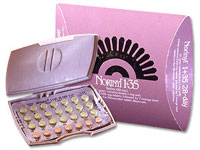Margaret Sanger Papers Project

Selected materials by and about the "birth control pioneer" Margaret Sanger (18791966) are provided here. A link to a companion site offers approximately 200 documents dealing with The Woman Rebel, Sanger's 1914 radical feminist monthly, for which she was indicted and tried for violation of federal obscenity laws.
The project plans to digitize more than 600 of Sanger's speeches and articles. At present, there are 25 transcribed speeches, 182 newspaper articles from 19111921, four public statements, a letter written by Sanger in 1915, and more than 50 articles from the Margaret Sanger Papers Project Newsletter, some of which contain primary source materials. There are plans to add to items regularly. Materials also include 27 links to sites offering Sanger writings, a biographical essay, and a bibliography. Links to collections of images and an MP3 file of Margaret Sanger's 1953 "This I Believe" speech are also available.



